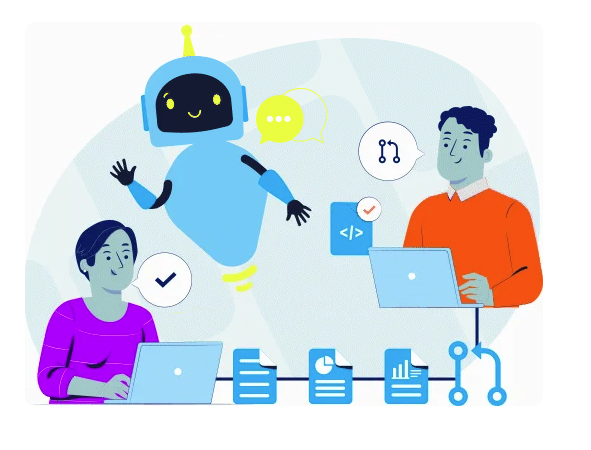5 Signs It’s Time to Foster Citizen Development
Citizen development is a goal for many organizations that embrace automation. The idea that an everyday business user could automate a task on their own without the help of a full-time developer or the IT department is incredibly appealing from both a cost and productivity standpoint. However, while some organizations have created and had success with citizen developer initiatives, wide-scale adoption of citizen development has yet to become mainstream.
Given the immense benefits this concept could bring, it’s important to keep your eye on the prize and do what you can to foster citizen development when the time is right for your organization. Below are 5 signs that it might be time to pour some gasoline on your citizen development fire.
What is a Citizen Developer?
The definition of a citizen developer is fairly simple: a business user who creates applications or technical solutions themselves using IT-approved tools without reliance on IT or a developer.
While the term is fairly new, the concept has been in practice for decades, with business users creating macro-enabled mini-applications in Microsoft Excel. In the world of business process automation, a citizen developer would use a low-code, no-code tool such as Microsoft Power Apps or Power Automate to automate repetitive manual tasks such as generating and distributing a report or automatically disseminate information such as the hiring of a new employee.
#1 Your organization embraces Microsoft products
If your organization favors Microsoft products, which most organizations do, then you are likely a prime candidate for a citizen developer program.
Microsoft’s Power Platform contains several applications that are designed to help average business users create automated workflows and simple business solutions themselves. Due to the familiar Microsoft interface, solutions like Power Automate, Power Apps, Power Virtual Agents, Power BI, and Power Pages are very easy to use and adopt. These solutions also have simple integrations with Microsoft products you are likely already using, such as Outlook, Teams, and SharePoint.
#2 Your backlog of RPA projects is too long
One common problem with Robotic Process Automation (RPA) is deciding what to automate. Once organizations get started and find some success with RPA, the process can take on a snowball effect and your list of processes that can be automated will grow and grow.
With a citizen developer program, you can significantly reduce your list of automation candidates by allowing your employees to take on the easy items.
A citizen developer program with not only allow you to automate processes faster, but you will also foster a positive outlook for your entire automation program as your employees will see the benefits of automation in near real-time.
#3 Your Automation costs are getting out of control
Many organizations experienced a similar trajectory with their automation programs. They started using RPA tools, hired RPA developers, and before long, they had dozens or even hundreds of automated processes. While this appeared successful, they came to find that bloated maintenance costs to repair broken processes and expensive RPA tools significantly lowered their perceived return on investment (ROI).
To offset these costs, organizations turned to more affordable, yet highly effective RPA solutions like Microsoft’s Power Automate and began investigating citizen development initiatives. A proper citizen development program, backed by the right tools, can help lower your overall automation costs as you won’t have to rely on expensive development resources for all your automations.
#4 Your organization is an early adopter of new technology
Organizations that embrace new technology are often a little ahead of the game. This is evident with major technology pushes such as the move from on-premises server infrastructure to the Cloud and the switch from traditional telephone solutions to VoIP-based internet phones and video conference solutions.
When the COVID-19 pandemic began, organizations on older infrastructures suffered the most while companies that embraced new technology transitioned to a work-from-home model quite easily. This is similar with automation. If your organization likes to stay ahead of the curve, then embracing citizen development now will certainly pay off in the future.
#5 You believe AI will significantly help reduce repetitive tasks
Citizen development tools are still young. They will continue to grow and adopt AI methodology to help employees automate faster. One prime example of this is Microsoft’s Co-Pilot, an AI solution that integrates with many Microsoft products, including Power Automate.
If you are a firm believer that AI will help you get work done faster and more efficiently, then a citizen development program based on Microsoft solutions is a great place to start.
Conclusion
Citizen development may not currently be the major gamer changer it was predicted to be, but the time will certainly come.
With RPA solutions constantly involving and organizations craving ways to save money and get work done faster, citizen development is an inevitable path forward, and organizations that start embracing it now will be significantly ahead of their competitors that waited didn’t.
Share this
Recent Stories

The Size of RPA Toolchains in 2023

3 Ways a Citizen Development Approach to Automation Can Help During a Recession


